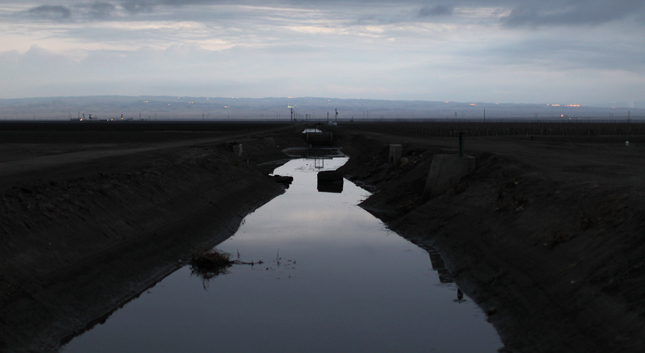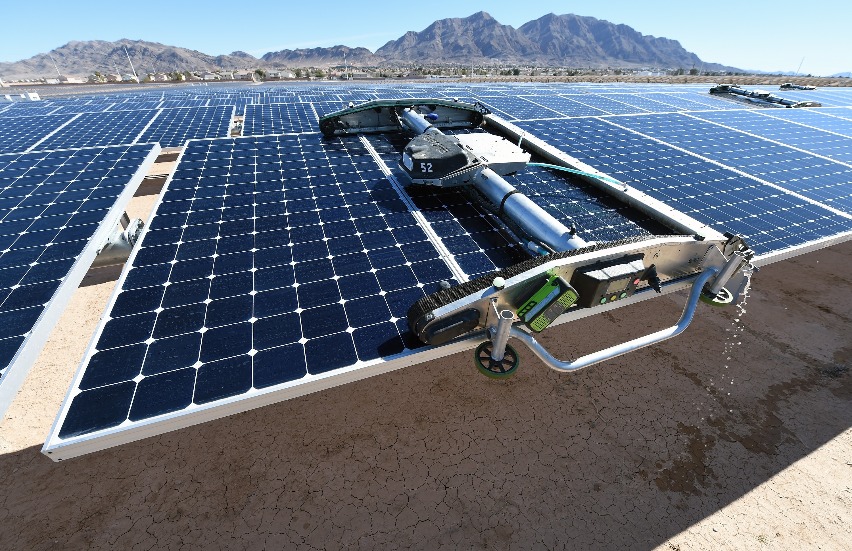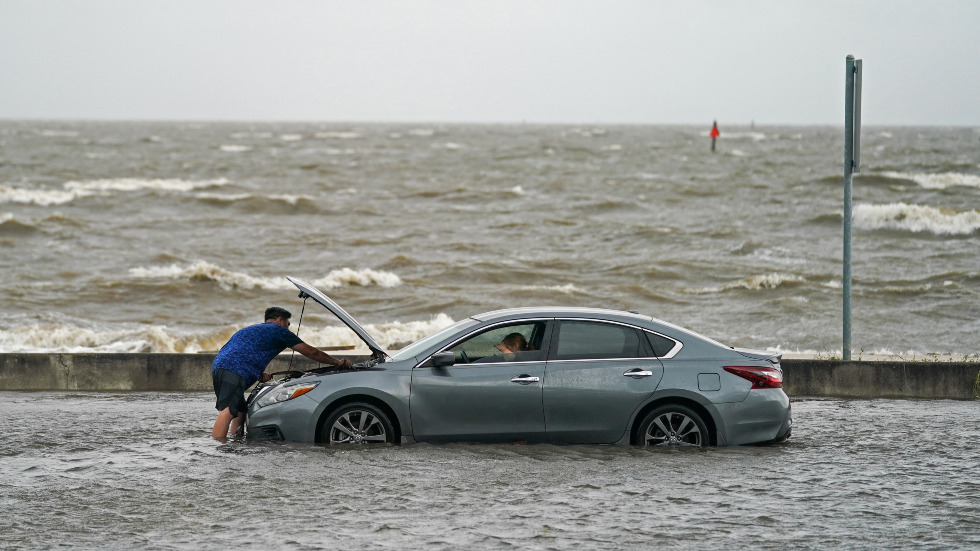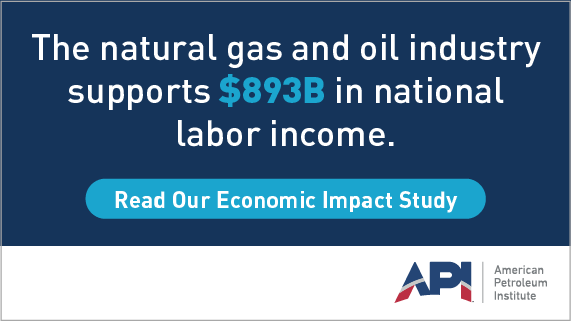Overnight Energy & Environment — Presented by the American Petroleum Institute — Trump water pollution rule loses in court
Welcome to Tuesday’s Overnight Energy & Environment, your source for the latest news focused on energy, the environment and beyond. Subscribe here: digital-staging.thehill.com/newsletter-signup.
Today we’re looking at a court decision that threw out a Trump-era rule weakening water protections, the Biden administration’s push to “update” the rules for wind and solar on federal lands and how climate change is impacting hurricanes.
For The Hill, we’re Rachel Frazin and Zack Budryk. Write to us with tips: rfrazin@digital-staging.thehill.com and zbudryk@digital-staging.thehill.com. Follow us on Twitter: @RachelFrazin and @BudrykZack.
Let’s jump in.
Judge nixes Trump water pollution rule — but still weighs restoration of Obama rule

A federal judge on Monday tossed out a Trump-era rule that rolled back water pollution protections but is still weighing whether to restore Obama-era protections or simply undo the Trump rollback to return to pre-Obama regulations.
In a court order, Judge Rosemary Márquez, an Obama appointee, vacated the Trump administration’s Navigable Waters Protection Rule (NWPR), which governed which bodies of water get protection from pollution.
Márquez sent the rule back to the Environmental Protection Agency (EPA) and the U.S. Army Corps of Engineers.
Some background: The Trump administration in 2019 repealed an Obama-era rule, sometimes called the “Clean Water Rule,” which expanded federal protections for smaller waterways.
And last year, the Trump administration put forward an additional rule, the NWPR, that reversed additional protections, including for wetlands, that had been in place for decades.
Márquez tossed the 2020 rule. Parties to the lawsuit have 30 days to file proposals on what to do about the 2019 regulation.
The decision comes as the Biden administration seeks to revise the rule and asked the court to send the Trump rule back for reconsideration.
But unlike the Biden administration, tribes challenging the rule argued in court that the Trump-era rules should be nixed completely.
Read more about Márquez’s decision here.
A MESSAGE FROM API
The American Petroleum Institute released a new analysis of the natural gas and oil industry’s impact on the U.S. economy. Learn how the industry is powering each state’s economy here.
Biden officials to ‘revise’ regulations for solar, wind on public lands

The Biden administration on Tuesday announced that it would “revise” regulations pertaining to renewable energy on public lands — a move that could make conditions more favorable for wind and solar development.
The Bureau of Land Management (BLM) announced that it’s seeking input as it drafts proposed “updates” and plans to formally propose a new rule early next year.
In particular, it’s asking for input on rent and fees for solar and wind, scenarios where reduced rents and fees are appropriate and potential extension beyond 30 years for solar and wind rights of way.
A notice published in the administration’s regulatory agenda cites part of an executive order that directs the Interior Department to identify steps that can be taken to increase renewable energy production on public lands.
Read more about what the BLM is doing here.
ACT NATURAL
The House Natural Resources Committee late Monday released the text of its reconciliation proposal that will be marked up at a remote hearing on Thursday.
Many details of the legislation — including that it would seek to raise fees paid for drilling on public lands and waters and repeal a Trump-era reconciliation bill’s requirement for drilling in the Arctic National Wildlife Refuge — had previously been reported.
However, the text provides new details on Democrats’ plans, including that they intend to raise royalty rates for drilling on public lands and waters to a minimum of 20 percent — up from 12.5 percent.
And they plan to raise minimum bids for leasing from $2 per acre to $10 per acre.
It also details the fees that they hope to slap on drilling wells left idle: $500 for wells idled fo one to five years, $1,500 for wells idled for five to 10 years, $3,500 for wells idled for 10 to 15 years and $7,500 for wells left idle for 15 years or longer.
Scientists detail role of climate change in Ida’s intensity

A combination of climate-related factors, such as warm ocean temperatures and increased sea-level rise, helped fuel Hurricane Ida and its path of destruction, scientists said.
The deadly storm made landfall as a Category 4 hurricane on Sunday, hitting Louisiana and Mississippi and leaving more than 1 million people without power early this week.
Jonathan Overpeck, a climate scientist and dean of the University of Michigan’s School for Environment and Sustainability, told The Hill that the warm ocean temperatures in the Gulf of Mexico appeared to cause Ida to strengthen in such a short amount of time.
“Those warm ocean temperatures are the fuel for these big tropical storms. So with Ida you saw it intensify rapidly to a Category 4 storm, and that’s a real classic climate change signal,” Overpeck said.
Ocean heat causes evaporation, he said, and that plays a major role in how storms form and their level of intensity. Two other factors are precipitation brought by a warmer atmosphere and storm surge exacerbated by rising sea levels.
Continuing to worsen: A report from its Intergovernmental Panel on Climate Change released earlier this month said that overall, hurricanes have probably become more intense over the past few decades and will continue to worsen.
The proportion of hurricanes with the highest wind speed categories — categories 3 through 5 — has likely increased over the past four decades, the report said, adding that human-caused climate change has increased the heavy precipitation associated with hurricanes.
And as temperatures rise, the overall proportion of Category 4 and 5 hurricanes are expected to increase, according to the report. For the U.S. Gulf Coast, North America’s East Coast and the Caribbean, more extreme hurricanes are projected.
Quality over quantity: “One of the common misconceptions is with climate change we’re going to get more storms,” Phil Klotzbach, a research scientist in the Department of Atmospheric Science at Colorado State University, told The Hill.
Instead, he said, “climate change tends to load the dice, so to speak, for more intense storms” and increases the odds of any given storm becoming a powerful hurricane.
“If you look at the number of storms, the number of hurricanes” in recent decades, “it’s actually down, but you do see increases in the highest of the high,” he added.
Read more about what the scientists told us here.
SOCIAL STATUS
A federal judge rejected a challenge from 12 states with Republican attorneys general that attempted to block the Biden administration from using certain figures to calculate the climate benefits of rules it puts forward, known as the “social costs” of greenhouse gases.
The states sued the Biden administration in March, trying to prevent it from using interim values for the costs of carbon, methane and nitrous oxide that were calculated during the Obama administration and adjusted for inflation.
Background info: Both Democratic and Republican administrations have used this “social cost” calculation to quantify climate benefits or consequences. Those calculations are included in cost-benefit analyses that provide the legal justification for such regulations.
But values have varied between administrations, with the Obama administration, for example, estimating the social value of emissions reductions to be higher than the Trump administration did.
Judge’s orders: Judge Audrey Fleissig, an Obama appointee in Missouri, argued that her court lacks jurisdiction.
Fleissig also argued that the states weren’t able to show that they’d actually be harmed by the social cost values, and asserted the fact that they could be harmed by future regulations justified by the values isn’t “concrete.”
Not over yet? Missouri Attorney General Eric Schmitt’s office pledged to appeal the ruling.
Read more about the ruling here.
IT’S ON!
The Bureau of Land Management (BLM) on Tuesday posted new leases for oil and gas drilling on 16,500 acres in five states, one week after the Interior Department announced that leasing in the areas would resume.
The proposed lease sales posted Tuesday include 9,200 acres in Montana, 80 acres in Alabama, 14 acres in Oklahoma and 520 acres in New Mexico. It also features a total of 6,735 acres in Mississippi, including 5,442 acres in the state’s DeSoto National Forest and another 1,293 acres in its Homochitto National Forest.
The Bureau of Ocean Energy Management also announced that it will proceed with an oil lease sale in the Gulf of Mexico.
Read more about the leases here.
WHAT WE’RE READING
Climate change in election spotlight in oil giant Norway, Reuters reports
Illinois governor threatens to veto clean energy compromise backed by labor union, WCIA reports
Griddy Energy settles with Texas, releasing customers from $9,000 power bills during freeze, CBS News reports
Survival mode kicks in as heat rises, Entergy blackouts persist across New Orleans area, Nola.com repots
A MESSAGE FROM API

The American Petroleum Institute released a new analysis of the natural gas and oil industry’s impact on the U.S. economy. Learn how the industry is powering each state’s economy here.
FROM THE HILL’S OPINION PAGES
There’s more to a greener grid than turbines and transmission wires, writes Mohammad Shahidehpour, a professor of electrical and computer engineering at the Illinois Institute of Technology.
It is time for everyone to have a healthier home, writes Jules Kortenhorst the CEO of RMI, which aims to transform global energy systems through market-driven solutions.
ICYMI
Environmental group warns hydrogen is a ‘false solution’ for renewables
Louisiana governor tells residents not to return without OK from officials
Kerry travels to Japan in bid to cut emission
And finally….something offbeat but kind of on-beat: Carole Baskin sells the zoo that used to belong to Joe Exotic.
That’s it for today, thanks for reading. Check out The Hill’s energy & environment page for the latest news and coverage. We’ll see you Wednesday.
{mosads}
Copyright 2024 Nexstar Media Inc. All rights reserved. This material may not be published, broadcast, rewritten, or redistributed..








